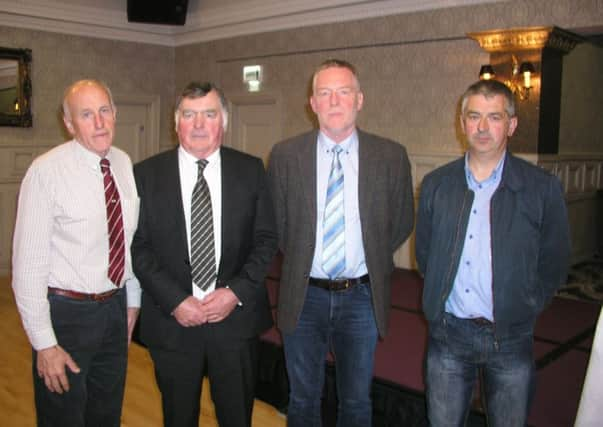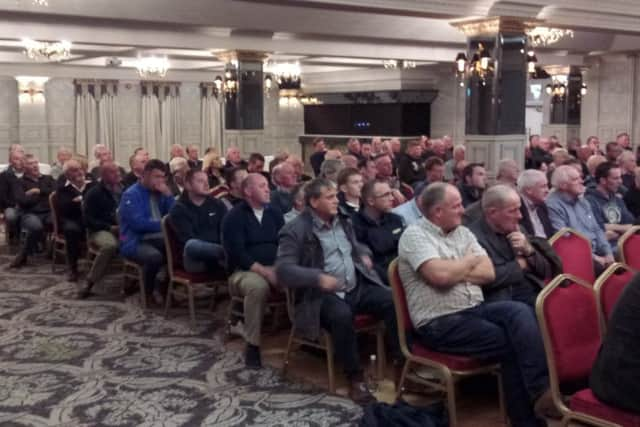A politician ‘no show’ at meeting


Farmers for Action’s William Taylor, one of the event organisers, commented: “Many are failing to understand the serious consequences for Northern Ireland if we leave the EU and the Customs Union.
“However, for politicians to fail to turn up when one of the linchpins of primary producers and their families across Northern Ireland that keep the doors of our biggest export industry open are in crisis, I think this will be reflected in the ballot box at the next opportunity and most likely by abstention!”
Advertisement
Advertisement
A number of political parties contacted by Farming Life in the wake of the meeting indicated that they had not received a specific invitation to the event.


Responding to this, William Taylor said: “The meeting had been widely promoted in the farming press and social media. It was made perfectly clear that attendance at the event was open to anyone with an interest in the well being of the beef industry in Northern Ireland.
“Politicians cannot say that they did not receive an invite.”
The event was attended by 140 farmers – many having travelled from the Republic of Ireland to take part. On the night, presentations were made by NIAPA’s Michael Clarke, William Taylor and Ernie Ritchie from the National Beef Association.
Advertisement
Advertisement
All agreed that beef prices are currently unsustainable. Farmers in attendance were told that returns to beef producers had fallen by a total of £27m over the past six months.
Clarke highlighted the specific pressures on suckler herdowners at the present time. Courtesy of his presentation Taylor said that Farmers for Action continues to press for legislation that will guarantee sustainable prices at farmgate level. Ritchie confirmed that the National Beef Association will be meeting with members of the EFRA committee in Westminster later this month.
Courtesy of the debate that followed, involving many of the farmers in attendance, a number of broad themes were agreed.
These included the need for specific support to be made available to the suckler sector and approaches to be made to Brussels as a means of getting compensation for the fall in incomes incurred over the past number of months.
Advertisement
Advertisement
There was strong agreement to the effect that elected politicians, at every level, must become actively involved in finding a solution to the many problems now facing beef farmers throughout Northern Ireland.
The meeting ended with a number of resolutions being put to the floor by William Taylor. These were voted on courtesy of a show-of-hands. Significantly, every farmer in attendance confirmed they would not be business in two years’ time, should beef prices remain at their current levels. There was also strong support for the lobby groups hosting the meeting to get into immediate talks with the Northern Ireland Meat Exporters Association, the Livestock and Meat Commission and all of Northern Ireland’s political parties.
There was a general consensus in the room that picketing meat plants would serve no useful purpose at the present time as many farmers had finished cattle to sell and they need to boost their cash flows.